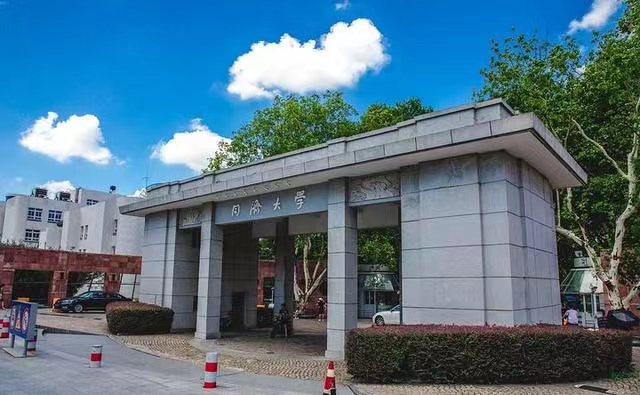The polydisperse phase aerosol generator is indispensable in the air filter performance test device. In order to test the counting efficiency of the air filter, a polydisperse phase aerosol with a uniform and stable concentration and controllable particle size distribution is required, and the preparation of the aerosol and its influencing factors must be analyzed. For a long time, Palas® has been committed to providing accurate and stable aerosol characterization equipment for efficient scientific research projects and teams Prof. Lin Zhongping from the School of Mechanical and Energy Engineering of Tongji University selected Palas® Promo® 2000 aerosol spectrometer in the project “Aerosol Characteristics in Test Rig for Air Cleaner Performance “. Promo® 2000 provides technical assistance to the research team of Tongji University with its unique characteristics of wide particle size measurement range, multiple channels, and high concentration upper limit.

The choice of the famous university research team
Tongji University is one of the national universities in China. Tongji University is jointly established with Chinese Ministry of Education and Shanghai local government together. After 115 years of development, Tongji University has become a comprehensive, research-oriented and international university with great influence at home and abroad. Its comprehensive strength ranks among the top universities in China. Professor Lin’s scientific research project is an experimental study on the aerosol characteristics of the air filter performance test bench. In this experimental project, it is based on the relevant requirements of “Road Vehicles-air Filters for Passenger Compartment”. For a new type of polydisperse phase aerosol generating nozzle, the Palas® Promo® 2000 aerosol particle size spectrometer was used to conduct a comparison experiment of atomization effect. The study investigated the physical properties such as the gas-liquid ratio between the compressed air and the spray solution, the dynamic viscosity of the spray solution, and the surface tension. And the pressure, speed, density and other parameters of compressed air on the aerosol concentration, particle size distribution and its dispersion. Through theoretical analysis and calculation, the empirical formula of the average diameter of the atomized droplet sauter and its particle size distribution obtained by the experiment is verified.

Particle size distribution under different gas-liquid ratios

Atomization particle size distribution of different liquid working fluids

Atomization particle size distribution trend line of different liquid working fluids
With Promo® 2000 providing accurate and stable monitoring data, the final experimental results of this research show that: For the gas-liquid two-flow externally-mixed axial needle nozzle, the average diameter of the droplet sauter increases first, passes the inflection point and then decreases with the increase of the gas-liquid ratio. When the airflow velocity is relatively small, the mean diameter of the sauter increases with the airflow velocity. When the air velocity increases to a certain extent, the gas-liquid ratio tends to be constant, and the average diameter of the sauter decreases significantly.
Palas® Instruments for Multi-Channel and Concentration Range Monitoring
Promo® 2000 is a light-scattering aerosol spectrometer system for particle size analysis and concentration determination 128 size channels per measuring range and a concentration range from < 1particle/cm3 to 106 particles/cm3. A touch display ensures user-friendly operation. Measurements can be started easily, and all data, such as the current number distribution and the number concentration, as well as 24 further statistical values, can be evaluated and displayed in real time. Promo® 2000 offers a new, fast 20 MHz signal processing processor, which analyses the progression of each particle signal. This makes it possible to recognize coincidental events in light scattering measurement technology at the individual signal and correct them. This way it is possible to increase the maximum concentration limit up to 106 particles/cm3 (welas® 2070 sensor). Also in low concentrations < 1 particle/cm3 with the welas® 2500 sensor, this leads to a higher measuring accuracy.
As a manufacturer specializing in aerosol monitoring equipment, Palas® of Germany can provide fast and diverse data analysis solutions for scientific research in universities. If your research topic also requires aerosol characterization verification, Palas® can provide real-time aerosol characterization equipment based on 4nm~1200nm or 0.2μm~100μm particle size range. Meet the different types of testing needs of researchers for aerosol particle size distribution, number concentration and mass concentration. Hope to provide technical support in your future research work.
If you are interested in the technical article “Aerosol Characteristics of Air Filter Performance Test Bench”, please click to register now to download the file in pdf format.
Click to register now to download
Palas® Promo® 2000 Aerosol Spectrometer

Advantages
· Measuring range of 0.2 to 100 µm (4 measuring ranges selectable in one device)
· Up to four measuring ranges in only one device:
– 0.2µm‒ 10µm
– 0.3µm‒ 17µm
– 0.6µm‒ 40µm
– 2μm‒ 100μm(additionally for sensors 2300 and 2500)
· Up to 128 size channels per measuring range
· Concentration range of 1 particle/cm3 to 106 particles/cm3
· Calibration curves for different refractive indices
· Very high and reproducible counting efficiency rate starting at 0.2 µm
· Pressure-resistant up to 10 bar (optional)
· Heatable to 250 °C (optional)
· Optical fiber technology
· Simple operation with a large touch display
· Calibration, cleaning and lamp replacement can all be performed independently by the customer
· External control by RS 232 or Ethernet
· With analysis software PDAnalyze
· Optional: Software PDControl for operation as welas® digital available
· Low maintenance
· Reliable function
· Reduces your operating expenses
Application
· Emission monitoring of installations
· Control of grinding and classification processes
· Monitoring of production processes in the food, pharmaceuticals and chemicals industries
· Testing of complete filters, inertial and wet separators or electrostatic precipitators
Want more product information? You are invited to join the Palas® Webinar – Palas® for Aerosol Concentration and Particle Size Distribution Studies.
Topic: Palas® Facilitates Aerosol Concentration and Particle Size Distribution Studies
When: Thursday, September 22, 2022 14: 00 – 15: 00
Speaker: Mr. Yi Fangjie
Market Manager Industry and Science at Palas® China
You are welcome to register for the conference!
Click here to register now

